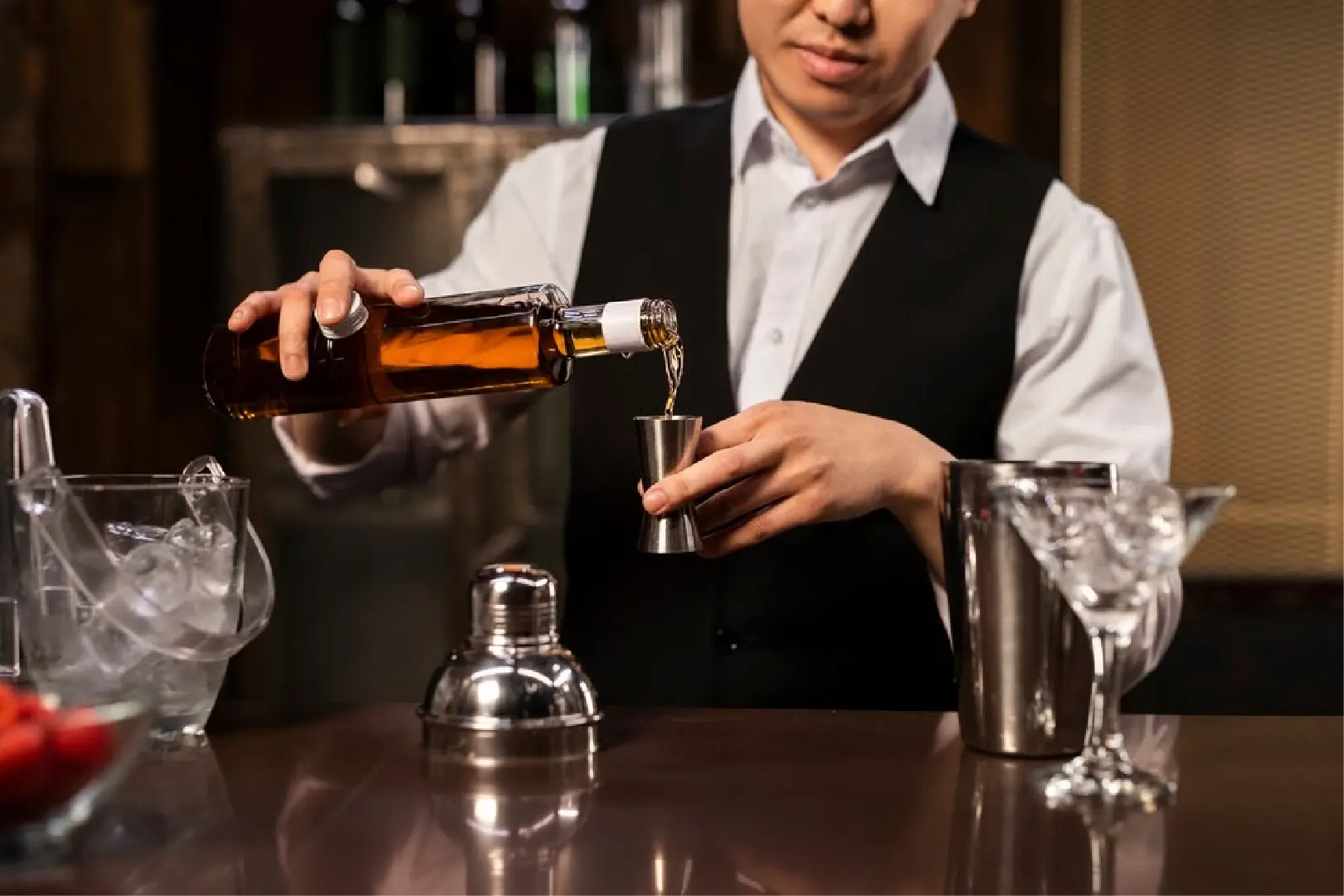
Knowing the distinction between a personal licence and a premises licence is crucial for anyone who holds a personal licence. You can sell alcohol if you have a personal licence, but only a business owner can do so if they have a premises licence.
We will go over the distinctions between a personal licence and a premises licence and what each covers in this blog post. The advantages of holding each sort of licence will also be discussed.
An individual is given a personal licence, also known as an alcohol personal licence, that enables them to approve the sale of alcoholic beverages from licenced locations. Alcohol sales are among the activities that can be conducted on premises with a licence.
An individual who owns the property, occupies it, or has been given permission to do so, such as a tenant, is given a premises licence. People over 18 must apply, and the space must be used for commercial purposes. While premises licences are specific to one location, personal licence holders can work in any licenced establishment in England and Wales.
What is a Personal Licence?
A personal licence is a licence which permits you to sell alcohol on licensed premises. It is renewed once every ten years. It will be revoked if you do something that puts your licence in danger. Each licenced premises must have one personal licence holder.
What are the benefits of an Alcohol Personal Licence?
The benefits of having a Personal Licence are:
- You can work in licensed premises for the supply of alcohol in the UK, except in Scotland. To sell alcohol in Scotland, you need to get a Scottish Personal Licence.
- It conveys that you are a responsible person who is knowledgeable about the sale of alcohol.
- It also demonstrates your commitment to working in the hospitality industry, giving you a career boost.
- You can authorise the sale of alcohol from licensed premises, which can benefit businesses.
What is the cost of a Personal Licence?
A Personal Licence costs £37 and must be paid to your local municipality. When getting your standard DBS (Disclosure and Barring Services) check, you could additionally have to pay additional fees (around £25). Your licence is valid indefinitely.
To learn more about the Personal Licensing Act and the relevant agencies, Visit Gov.UK.
Who Should Hold a Personal Licence?
One personal licence holder in charge of selling alcohol must be present in every establishment. There must be a designated premises supervisor if there is only one person. However, more than one person with a personal licence may work at a single location. For instance, it is crucial to consider the benefit of putting assistant managers through the personal licence requirement if the business has many of them. This will make it possible to divide up the responsibility of selling alcohol. Additionally, it will look favourably upon any licence applications or reviews. However, you are not required to engage other personal licence holders other than the appointed premises supervisor.
How to apply for a Personal Licence?
When requesting a Personal Licence, you must:
- Be over the age of 18,
- Possess a legal form of identification, and
- Earn a credential in APLH Personal Licence Course (e.g. the Level 2 Award for Personal Licence Holders)
- Possess a fundamental Designated Premises Supervisor DBS check or local licencing authority check (obtained within the last three months)
- Fill out a personal licence application form, pay the required price, and deliver it to your local council.
Here is further information on how to apply for a personal licence.
Get your Legal Personal Licence by signing up for our APLH courses
Personal Licence Courses
Book NowRated Excellent
on major review sites

What is a Premises Licence?
Premises where entertainment and other activities, such as the sale of alcohol, take place according to the Licensing Act of 2003 must possess a licence. The premises licence is valid for the existence of the company that provides regulated entertainment and/or alcohol.
What are the benefits of a Premises Licence?
Possessing a premises licence has numerous advantages, including:
- A club premises certificate provided by a premises licence enables companies to sell alcohol and host activities that require a licence.
- It shows that the location is managed by trustworthy people who are informed about the sale of alcohol.
- Club premises certificates can help businesses stand out from the competition by demonstrating their dedication to following the law.
- A premises licence holder can also increase a company’s appeal to customers by demonstrating that they take their obligations seriously.
What are the licenceable activities covered by a premises licence?
Licensable activities that fall under the scope of a premises licence are
- The retail sale of alcohol,
- The provision of supervised entertainment
- The serving of late-night refreshments
What is the cost of a Premises Licence?
Depending on the kind of premises and the activities conducted there, a Premises Licence can range in price. For instance, venues for music and dancing will generally cost more than venues for the exclusive sale of alcoholic beverages. The rateable value of the premises also affects the price of a premises licence.
Who can apply for a premises licence?
- Any person or individuals who are 18 years of age or older who intend to operate a business involving the use of the premises for licensable activities,
- businesses or partnerships,
- Organisations like hospitals, charities, schools, and village hall committees.
What is a Complete Premises Licence Application?
- the licence fee based on the rateable business value of the property (www.voa.gov.uk);
- the operating schedule;
- a plan of the property; and,
- If alcohol sales are intended, a form of consent signed by the person the applicant proposes as the designated premises supervisor (DPS).
How to apply for a Premises Licence?
- Be over 18 years old,
- Possess a legitimate kind of identification, disclose your operational timetable, and comprehend your licencing goals
- Possess a location used for business reasons
- Fill out a premises licence application form, attach the requisite fee, and deliver it to your local government or approved premises supervisor.
We hope this explanation of the distinctions between a Personal Licence and a Premises Licence, as well as the requirements and fees related to each, has been helpful. Please get in touch with us if you have any more inquiries.




